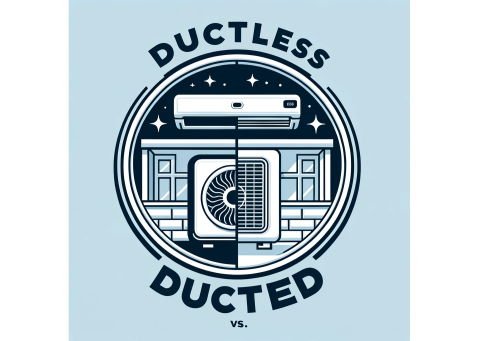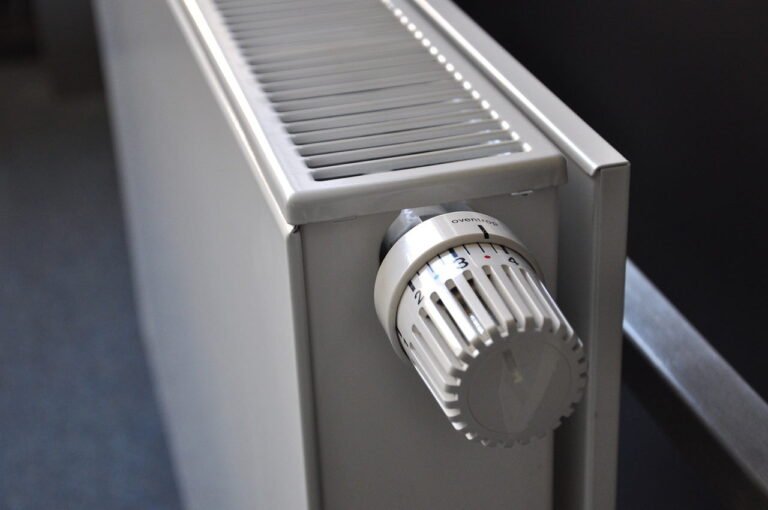Benefits of a Dehumidifier: Is Dehumidification Important?
Have you ever walked into your home and felt a sticky, damp sensation in the air? If so, you might already understand the benefits of a dehumidifier. Or maybe you’ve noticed a persistent musty smell that just won’t go away. These are common signs that your home might be suffering from high humidity. While it might seem like a minor inconvenience, excessive humidity can lead to a host of problems affecting your health, comfort, and the structural integrity of your home.
Dehumidification, the process of removing excess moisture from the air, is more important than many homeowners realize. It’s not just about feeling more comfortable; it’s about creating a healthier living environment and protecting your investment.

In this article, we’ll explore the benefits of a dehumidifier and why dehumidification is essential for your home, the problems caused by high humidity, and how you can effectively manage moisture levels to ensure a safer, more comfortable space for you and your family.
Understanding Humidity
Humidity, or Relative Humidity (RH) as it’s more accurately called, is basically how much water vapor is in the air compared to the maximum amount it can hold at a certain temperature. Think of it as a percentage showing how close the air is to being completely saturated with moisture.
100% RH: Is It Fog?
When RH hits 100%, the air is totally saturated with moisture, which can lead to fog or dew forming. But whether you actually see fog depends on other factors like temperature and air pressure.
The Effects of High Humidity
High humidity really messes with your body’s natural cooling system, making you feel hot and sticky because your sweat doesn’t evaporate well in moist air. This not only makes you uncomfortable but also creates a perfect breeding ground for bugs and germs, posing health risks. Plus, high humidity can lead to mold, mildew, and excessive condensation, which can damage your home and furniture. It makes your home feel warmer and harder to cool because moist air holds heat better than dry air.
On top of that, high humidity can mess with your home’s structure, causing wood to rot, paint to peel, and metal to corrode. You might see signs like condensation on windows and water stains on walls. It also makes your home less comfortable, making it tough to sleep and causing musty odors.
And let’s not forget how it affects indoor air quality, promoting the growth of dust mites and allergens that can worsen asthma and allergies.
So, managing humidity levels is really important for keeping your home comfortable and healthy. The most effective way to reduce excess moisture and keep humidity within a normal range is by using a dehumidifier.
The Role of Dehumidifiers
Dehumidifiers play a vital role in managing indoor humidity levels, making your home more comfortable and healthier. These devices work by pulling in air and blowing it over a cooled evaporator coil. This cooling process causes the moisture in the air to condense into water droplets, which are then collected. Depending on the type of dehumidifier, this water either drips into a reservoir that needs to be emptied regularly or is directed out through a permanent drain.
Once the air has been stripped of excess moisture, the dehumidifier pushes the now drier air back into the room. This continuous cycle of moisture removal helps to maintain an optimal humidity level in your home.
Signs Your Home Needs Dehumidification
You might be wondering how to tell if your home needs a dehumidifier. There are several clear signs to look out for that indicate your home’s humidity levels are too high and need to be controlled.
Visible Mold or Mildew: If you start noticing mold or mildew growing on walls, ceilings, or in corners, it’s a major red flag. Mold thrives in damp environments, and its presence indicates that your home’s humidity is too high. Not only is mold unsightly, but it can also pose serious health risks.
Musty Odors: A musty smell in your home is another strong indicator of high humidity. This odor is typically caused by mold and mildew, which produce a distinct, unpleasant smell as they grow and spread.
Condensation on Windows and Walls: If you frequently see condensation on your windows or walls, it’s a sign that the air inside your home is holding too much moisture. This can lead to water damage over time, as well as create a breeding ground for mold and mildew.
Increased Allergy Symptoms: High humidity can exacerbate allergies and respiratory issues. If you or your family members are experiencing more frequent allergy symptoms like sneezing, coughing, or itchy eyes, it could be due to dust mites, mold spores, and other allergens thriving in the humid environment.
Damp or Clammy Feeling Indoors: If your home feels damp or clammy, especially in certain rooms or areas, it’s a clear sign that the humidity levels are too high. This can make your living space uncomfortable and can even damage your belongings over time.
Benefits of a Dehumidifier
Using a dehumidifier in your home offers a host of benefits, making your living space healthier, more comfortable, and better protected against damage.
Health Benefits
One of the most significant advantages of dehumidification is the positive impact on your health. Lower humidity levels reduce the growth of mold, mildew, and dust mites, which can cause or worsen respiratory issues like asthma and allergies.
Reduction in Allergens
Dehumidifiers help minimize the presence of common allergens such as mold spores and dust mites.
Improved Air Quality
Lowering the humidity in your home can greatly improve indoor air quality. When the air is less humid, it feels fresher and cleaner, reducing the likelihood of musty odors and creating a more pleasant environment.
Protection of Home Structure and Belongings
High humidity can cause extensive damage to your home’s structure and your belongings. Excess moisture can lead to wood rot, peeling paint, and corrosion of metal surfaces.
Prevention of Mold and Mildew
Dehumidifiers are highly effective at preventing mold and mildew growth. These fungi not only damage your home and belongings but also pose serious health risks.
Prolonging the Life of Furniture and Appliances
Excessive moisture can deteriorate furniture, electronics, and other household items over time.
Enhanced Comfort
Lower humidity levels contribute to a more comfortable living environment. You’ll notice that the air feels cooler and less sticky, making it easier to relax and enjoy your home.
Better Sleep Quality
High humidity can make it difficult to sleep comfortably, as it often leads to sweating and discomfort.
General Comfort and Well-Being
By reducing humidity, you’ll feel more comfortable and enjoy a higher quality of life in your home.
Choosing the Best Dehumidifier Type for Your Home
When selecting a dehumidifier for your home, it’s essential to understand the different types available and their respective advantages and disadvantages. Here are the main types of dehumidifiers:
Refrigerant Dehumidifiers
Refrigerant dehumidifiers pull moist air in and pass it across a cooled evaporator coil, causing the moisture to condense and drain away. The air is then reheated as it moves across a condenser coil before the warm, dry air is passed back into the room.
Pros:
- Work most efficiently above 60 F.
- Capable of high-performance dehumidifying.
Cons:
- Only work efficiently in warm and high humidity conditions.
- Poor performance below 60 F.
- It can be noisy.
Desiccant Dehumidifiers
Desiccant dehumidifiers use fans to pull damp air inside the unit, where the moisture is captured by a desiccant material on a slowly spinning sealed disc. A section of the disc is heated, causing the moisture to condense on a heat exchanger and drain away, allowing the dried air to flow back into the room.
Pros:
- Work best in low-temperature conditions (garages, basement, etc.)
- Quiet.
- Lightweight, easily moved.
Cons:
- Less energy efficient.
- Work best in small areas.
- Cheap to buy and run.
- Poor performance above 70 F.
Peltier (Thermo Electric)
Damp air passes over a cooled heat sink where the moisture condenses and drains away, then the drier air moves back into the room.
Pros:
- Very energy efficient.
- Work best in small areas/rooms.
- Cheap to buy.
- Lightweight and portable.
Cons:
- Only work efficiently in small rooms, not >220 Sq. Ft.
- Not suitable for high humidity areas.
- Poor performance below 60 F.
Whole-House Dehumidification Systems
If humidity is a significant issue in your home, a whole-home dehumidification system might be the best solution. These units provide comprehensive humidity control by combining humidification and dehumidification in one system, allowing you to maintain optimal RH levels year-round, regardless of outside conditions. While older gas space heaters often created high humidity and condensation issues, modern furnaces usually do not require dehumidification. Instead, they often necessitate humidification due to their design.
Modern gas furnaces operate using either atmospheric or sealed combustion. Atmospheric combustion furnaces draw combustion air from inside your home, replacing it with low-humidity air from outside, which stays dry when heated and exhausted. In contrast, sealed combustion furnaces, typically installed in attics, garages, or crawl spaces, pull air from outside, ensuring indoor humidity levels remain unaffected. These units do not dry out the indoor air, maintaining consistent moisture levels while providing heat.
Pros:
- Seamless Integration: Can be retrofitted to your existing gas furnace or HVAC system, providing comprehensive humidity control.
- Ease of Use: Once installed and commissioned, it operates automatically. The system includes a hygrometer to constantly monitor RH levels and a remote humidistat controller for easy adjustments.
- Energy Efficiency: Drier air is easier to heat, potentially lowering the temperature settings you need, which can reduce power bills.
- Optimal Performance: Enhances the efficiency of the heating system, as dry air is easier to heat and cool than moist air.
- Year-Round Control: Maintains accurate RH levels throughout the year, improving overall comfort and indoor air quality.
- Cost Savings: Lowered temperature settings and improved HVAC efficiency can offset the electricity costs of running the dehumidifier.
Cons:
- Initial Cost: Retrofitting a whole-home system involves upfront installation expenses.
- Electricity Usage: Running a dehumidifier will increase electricity consumption, although this may be offset by increased HVAC efficiency.
- Home Sealing Required: Effectiveness depends on your home being properly leak-checked to avoid losing expensive conditioned air, necessitating thorough inspections and potential repairs.
- Maintenance: Regular maintenance is required to ensure the system operates efficiently and effectively.
Tips for Maintaining Optimal Humidity Levels
To keep your home’s humidity levels in check, regular maintenance of your dehumidifier is crucial. This includes cleaning the filters, emptying the water reservoir, and ensuring the unit is functioning correctly.
Regular maintenance helps the dehumidifier run efficiently, preventing mold and mildew buildup.
Additionally, using exhaust fans in kitchens and bathrooms can significantly reduce humidity. These areas are prone to high moisture levels due to cooking and showering, so effective ventilation is essential to disperse excess humidity.
Proper ventilation throughout your home is another key factor in maintaining optimal humidity levels. Ensure that your home is well-ventilated by opening windows when weather permits and using fans to circulate air. Monitoring humidity levels with a hygrometer can also help you keep track of indoor moisture levels, allowing you to make adjustments as needed.
Conclusion
Dehumidification is crucial for maintaining a healthy and comfortable home. Understanding the benefits of a dehumidifier is essential, as high humidity can lead to a range of problems, from health issues and allergies to structural damage and discomfort. By using a dehumidifier, you can significantly reduce these risks, ensuring that your living space is safer and more pleasant.
It’s important to regularly assess and address the humidity levels in your home. Pay attention to the signs of high humidity, such as mold growth, musty odors, and condensation on windows and walls. If you notice these issues, it’s time to take action and invest in a dehumidifier to bring those moisture levels down.
More Articles About Home Heating
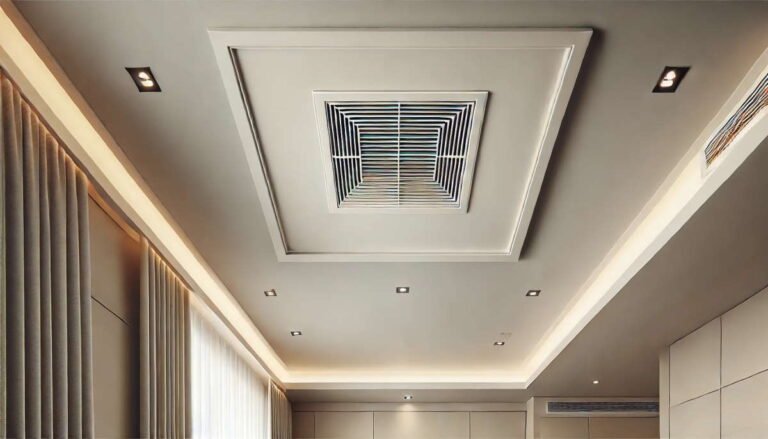
Tips and Tricks on How To Remove Bad Smell From The Air Ducts
The bad smell from the air ducts of your HVAC system is a common problem for many homeowners. Ductwork is the…
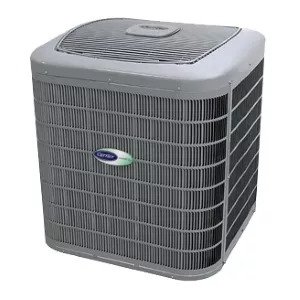
Heat Pump Not Cooling? Here’s What You Need to Know
Heat pumps are essential not only in the winter for heating our homes but also in the summer to cool…
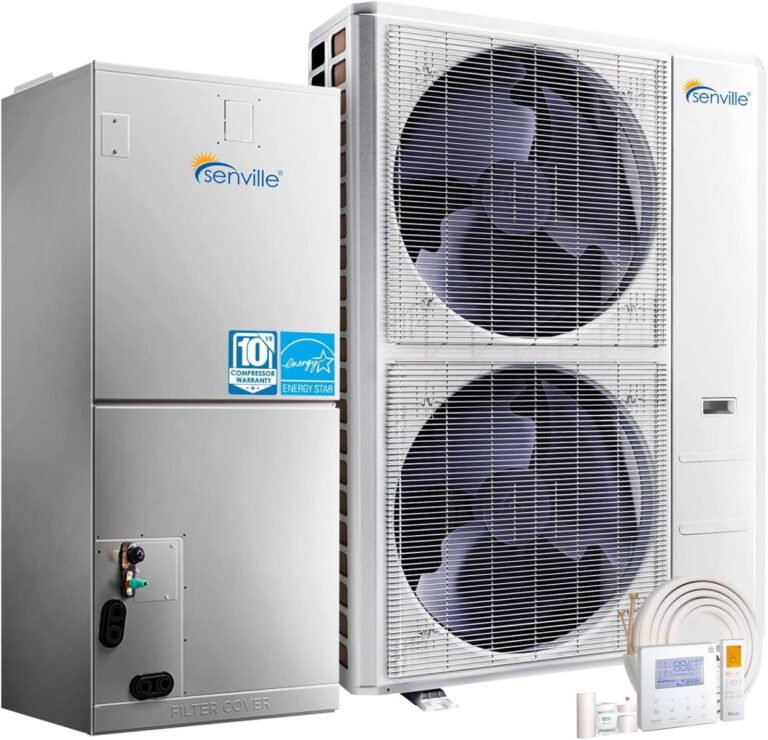
Compare Ductless Mini-Split Heat Pumps vs. Window Heat Pumps: Which Is Right for You?
In this article, we are going to look at ductless mini-split heat pumps vs. window heat pumps, examine how each…



